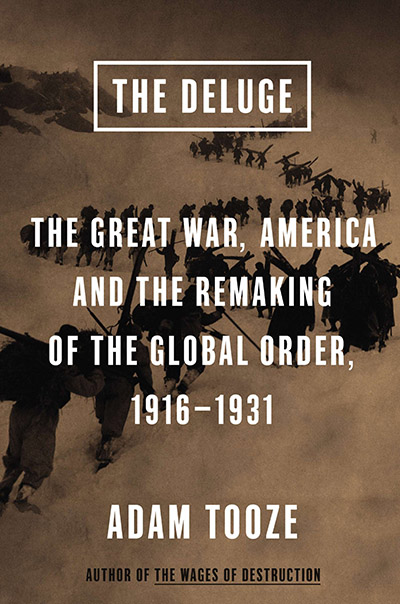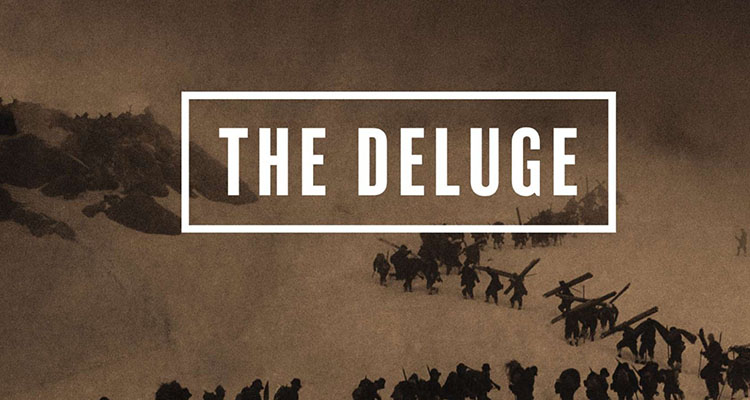 The Deluge
The Deluge
The Great War, America, and the Remaking of the Global Order, 1918–1931
By Adam Tooze. 672 pages.
Viking, 2014. $40.
ADAM TOOZE BUILT HIS EUROPEAN REPUTATION specializing in the economic history of the Third Reich, and he makes a brilliant transition to Yale University and the American side of the Atlantic with his seminal analysis of the new power relationships that emerged from World War I. His fundamental contention is that the United States entered the conflict not to make the world safe for some combination of democracy and free trade but in pursuit of a capitalist world order based on moral authority, military power, and economic supremacy. In particular President Woodrow Wilson believed this combination would enable the rule of law to replace the great-power ideologies of autocracy and militarism that had brought the world to the edge of collapse. Wilson proposed to develop a new approach to government, moving beyond politics to focus instead on economic and social concerns.
Wilson’s vision might have been improbable, but his approach was grimly realistic. The pre-1914 world order had been irrevocably shattered. The only credible alternatives were insurgency, typified by fascism and bolshevism, and a hyperpower fulfilling America’s self-defined Manifest Destiny on a global scale through the League of Nations. Wilson’s plan, however, was stymied by the refusal of Congress to ratify the peace treaty and by America’s rejection of the league. Tooze describes these as manifestations of immaturity, of the United States’ reluctance to accept its responsibilities as a hyperpower avant la lettre, clinging instead to a constitutional interpretation that deprived the federal government of the economic and political power needed to implement Wilson’s vision. The result in the 1920s was a pattern of indirect participation in international affairs that evoked no more than minimum compliance from governments that were themselves grappling with such immediate problems as war debts and reparations and such long-term issues as global geopolitics and imperial reconfiguration.
The incompletely democratic, multisided search for order that emerged was not necessarily doomed from the start. But it lacked the coherence and flexibility to cope effectively with unpredictably paid reparations; with Germany’s postwar traumatization; with burgeoning national aspirations in Africa and Asia; and with a Great Deflation after 1920 that broke the back of a metastasizing labor movement. Vulnerability, in short, was mutual and comprehensive.
The Great Depression of 1929 and its resulting Great Default on debts to the United States correspondingly opened windows of opportunity. Japan, Italy, Germany, and above all the Soviet Union, expanded their political and economic influence by force and its threat. But the challengers to the post-1918 democratic powers encountered a surprise. Their French and British opponents and the still ambivalent United States shrank from another war, less from fear of failure than from fear of cost. Comparatively economically strong and politically resilient, they imposed standards of production and performance that proved impossible for the Axis to sustain during World War II—and in the long run exceeded even Soviet capacities. The details make a fitting subject for what one hopes will be a second volume. And as a final irony, Europe since World War II has moved ever closer to Woodrow Wilson’s original model of emphasizing domestic welfare at the expense of international politics.
Dennis Showalter is professor of history at Colorado College. His recent books include Armor and Blood: The Battle of Kursk (2013), Hitler’s Panzers (2009), and Patton and Rommel: Men of War in the Twentieth Century (2005).


.jpg)



